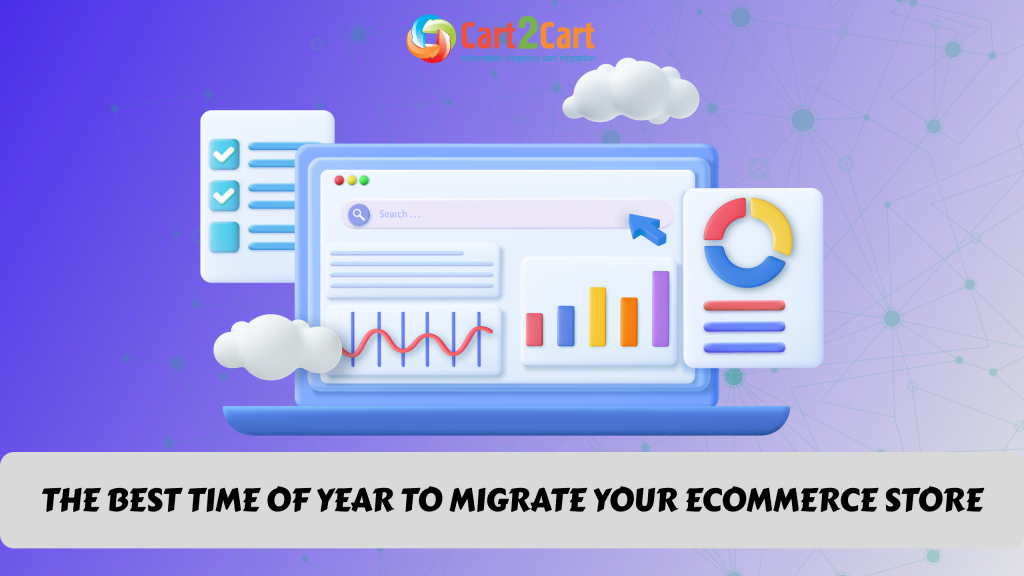In the dynamic world of e-commerce, success isn't solely about having a fantastic product or a beautifully designed online store. While those elements are undoubtedly crucial, they're just the beginning of the journey. To truly thrive in the digital marketplace, your potential customers need to find you. This is where SEO, or Search Engine Optimization, becomes your greatest ally.
Welcome to the "BigCommerce SEO Guide: Everything You Need to Know." If you're an e-commerce entrepreneur or an online business owner, this guide is your roadmap to unlocking the potential of BigCommerce and harnessing the power of SEO to make your online presence not just visible, but prominent.
BigCommerce is a feature-rich e-commerce platform that provides a robust foundation for your online store. Yet, to rise above the competition and attract a steady stream of organic traffic, you need to understand how to optimize your BigCommerce store for search engines. This guide will equip you with the knowledge and strategies to do just that.
SEO can seem like a complex and ever-evolving field, but it doesn't have to be intimidating. In this comprehensive guide, we'll break down the essentials, explore best practices, and share practical tips to help you navigate the world of BigCommerce SEO with confidence.
Is BigCommerce good for SEO?
BigCommerce is a solid e-commerce platform when it comes to SEO (Search Engine Optimization). It offers a range of features and functionalities that can be leveraged to improve your website's search engine rankings and visibility. Here are some key reasons why BigCommerce is considered good for SEO:
- SEO-Friendly URL Structure: BigCommerce allows you to customize your URLs, creating clean and keyword-rich web addresses. This is a fundamental aspect of on-page SEO.
- Mobile Responsiveness: BigCommerce templates are mobile-responsive, which is critical for SEO as Google prioritizes mobile-friendly websites in its rankings.
- Fast Page Loading Speed: BigCommerce stores tend to load quickly, which is another factor that Google considers in its search rankings. Faster-loading pages can lead to a better user experience and improved SEO.
- Security: BigCommerce provides an SSL certificate for your store, which not only secures customer data but also boosts your SEO since Google prefers secure websites.
- Structured Data Markup: You can implement structured data markup on BigCommerce, providing search engines with more information about your products. This can lead to rich snippets in search results, improving click-through rates.
- Content Management: BigCommerce offers a built-in blogging platform that allows you to create high-quality, SEO-friendly content that can attract organic traffic.
- XML Sitemaps: You can generate and submit XML sitemaps to Google, making it easier for search engines to discover and index your pages.
- Robust SEO Tools: BigCommerce provides a range of SEO tools and features, including meta tag customization, canonical tags, and the ability to control indexing for different types of content.
- Social Media Integration: Integrating your store with social media platforms is made easier on BigCommerce, helping you expand your online presence, which can indirectly impact your SEO.
- Regular Updates: BigCommerce continually updates its platform, often with SEO improvements and enhancements, ensuring your store stays competitive in the ever-evolving world of SEO.
However, it's essential to note that while BigCommerce provides a strong foundation for SEO, success in search engine rankings also depends on your content quality, keyword research, backlink profile, and other off-page SEO factors. Your SEO success ultimately depends on how effectively you implement best practices and create high-quality content relevant to your target audience.
How to optimize BigCommerce for SEO
Use custom URLs
The URs for your BigCommerce site’s blog posts, web pages, and product pages are important for SEO. Reach engines like a clean and simple URL structure that are understandable.
Avoid URLs that read like this: http://www.object.com/index.php?id_lexpezi=280&sid=6p96e
Create URLs that make sense, and include a target word, for example: https://en.wikipedia.org/wiki/Gallery_of_sovereign_state_flags
Submit your sitemap to Google and other search engines
To ensure a good ranking on search engines, you must submit your sitemap to Google. This helps search engines to index and rank your website for related search terms.
Start by verifying your site on Google. Go to Google Search Console, and add your site’s URL. You will receive an HTML verification code. Copy it into Web Analytics under Advanced Settings on the BigCommerce dashboard. Select Site Verification Tag. Click verify in your Google Search Console Tab and submit your Sitemap to Google.
Next, go to your Google Search Console and enter your sitemap URL there. Now Google can see your site and will start indexing it.
Note: look through the Cart2Cart Blog for useful tips & tricks on how to migrate data across various shopping cart solutions.
Set up your site structure with care
A proper website structure helps Google to index your website well. Proper site structure makes your site crawlable, which is essential for SEO, especially for an eCommerce site.
Search engines will start crawling your site from the top to the bottom: from the main hub (homepage) and from there to other pages on your website tree. It is crucial that all your product and content pages are linked in a logical way to your homepage and can be reached within 2 to 3 links from your home page.
If there are too many links to get to a page, Google will struggle to crawl your site, and that's a big problem for your business.
Optimize your site loading speed
Slow loading times are bad for SEO. Search engines give preference to sites that load fast, and so do internet users.
Consider the following steps to make your BigCommerce site load as quickly as possible:
- Use image compression tools to reduce the image file sizes.
- Limit the use of external scripts or custom code on your site.
- Remove apps that you don't use.
- Don't use too many different web fonts on your site.
- Enable Accelerated Mobile Pages (AMP) format for your pages and posts. This will help users to find you quickly when they search for you on their phones.
Do keyword research to use on your website
The words that people use in their queries on the web are called "keywords". Keywords are a primary element of SEO. Since the ultimate goal of BigCommerce SEO services is to help people find your business or products, you need to do keyword research to find the search terms that people are using on search engines. You can then choose the relevant keywords and apply them strategically on your website to get organic traffic.
Optimize on-page SEO
On-page optimization entails all the steps a website owner can take to improve its position in the search rankings. Here are four of the important on-page elements that call for optimization.
Title
This is the first line that appears in the search results. Search engines use it to work out how to categorize and rank your website. Your title must contain keywords and must not exceed 60 characters.
Headers
Apply headings and subheadings properly. Use (H1, H2, H3, etc.) and don't bold your headings or use italics. Proper headings make it easier for search engines to understand, and index your content properly.
Meta Descriptions
Meta descriptions are short summaries of web pages that users see underneath the blue clickable links on a SERP (search engine results page).
These snippets are often the reason why a user clicks on the link, so a well-written meta description can increase clickthroughs to your website. Search engines notice the clickthroughs and may reward such websites with higher rankings.
Content
Content is the most important for SEO. High-quality content on your website gives visitors to your website a reason to linger, which can impact your search rankings positively. High-quality content is content that is well-written and has not been duplicated or copied from other sources.
Build backlinks
Backlinks are links from one or more other websites pointing to your website. Google and search engines use the number of backlinks pointing to a website to evaluate website rankings on SEO results. Pages with a high number of backlinks tend to have high organic search engine rankings. It's good practice to only put backlinks on high-quality websites that are relevant to your business.
FAQs
Is BigCommerce good for SEO?
BigCommerce is a solid choice for e-commerce SEO, offering the tools and features necessary to improve your website's visibility on search engines. By following SEO best practices and continually optimizing your online store, you can harness the power of BigCommerce to enhance your SEO efforts and drive organic traffic to your site.
What tools do I need to perform SEO on BigCommerce?
Performing SEO on your BigCommerce store requires a combination of tools and resources to help you optimize your website, track performance, and stay updated with the latest trends. Here is a list of essential tools for performing SEO on BigCommerce:<.p>
- Google Analytics: Google Analytics provides in-depth insights into your website traffic, user behavior, and conversions. It's an invaluable tool for understanding how users interact with your site and which SEO strategies are most effective.
- Google Search Console: This tool allows you to monitor how Google views your website. You can identify and address issues like indexing problems, mobile usability, and see which keywords are driving traffic to your site.
- Keyword Research Tools: Tools like Google Keyword Planner, SEMrush, or Ahrefs can help you identify relevant keywords for your products and niche. These are the foundation of your SEO strategy.
- On-Page SEO Tools: BigCommerce itself provides tools for on-page SEO, allowing you to customize meta titles, descriptions, and URLs. It's important to optimize these elements for every page and product.
- Backlink Analysis Tools: Tools like Ahrefs or Moz can help you analyze your backlink profile, identify high-quality backlink opportunities, and monitor your link-building efforts.
- Content Management System: BigCommerce has a built-in blogging platform for creating SEO-friendly content. Utilize it to produce high-quality articles and product descriptions.
- XML Sitemap Generator: BigCommerce can automatically generate XML sitemaps for your website, which you can submit to Google Search Console for easier indexing.
- Page Speed Tools: Google PageSpeed Insights or GTmetrix can help you analyze and optimize your website's page loading speed. Faster loading times are crucial for SEO.
- Structured Data Markup Generators: You can use tools like Google's Structured Data Markup Helper to implement structured data on your product pages, potentially leading to rich snippets in search results.
- Social Media Management Tools: Tools like Buffer or Hootsuite can help you manage your social media presence, promoting your BigCommerce store and indirectly impacting SEO.
- Crawling and Auditing Tools: Tools like Screaming Frog or Sitebulb can help you identify and fix on-page and technical SEO issues on your BigCommerce site.
- Local SEO Tools: If you have a physical store, local SEO tools like Moz Local or BrightLocal can help you optimize your local search presence.
- Competitor Analysis Tools: Tools like SEMrush or SpyFu can help you analyze the SEO strategies of your competitors and discover opportunities for improvement.
- A/B Testing Tools: Platforms like Optimizely or Google Optimize can help you run A/B tests to optimize your website for conversions, a crucial part of SEO.
- Link Building Tools: Tools like BuzzStream or Pitchbox can help you streamline your outreach and link-building efforts.
- SEO Plugins: If you're using BigCommerce's WordPress integration, consider using SEO plugins like Yoast SEO or All in One SEO Pack for WordPress to enhance on-page SEO.
Remember that while these tools are essential for SEO on BigCommerce, your strategy should be based on a combination of on-page SEO, technical SEO, content creation, link-building, and ongoing monitoring and optimization. SEO is an ongoing process, and these tools can help you stay on the right track.
What are the problems with BigCommerce SEO?
While BigCommerce is a robust e-commerce platform that offers many SEO-friendly features, there are still some potential challenges and limitations that users may encounter when it comes to SEO. Here are some common problems associated with BigCommerce SEO:
- URL Structure Limitations: BigCommerce provides some customization options for URLs, but it may not offer the level of flexibility that more SEO-centric platforms do. You may encounter challenges in creating the exact URL structure you desire.
- Limited Meta Data Customization: While you can customize meta titles, descriptions, and headings on BigCommerce, the level of customization may not be as extensive as some SEO experts prefer. You may have less control over your on-page SEO elements compared to other platforms.
- Duplicate Content Issues: If you have a large inventory with many similar products, you may encounter duplicate content issues. BigCommerce's built-in canonical tag support helps, but managing large product catalogs can be challenging.
- Structured Data Complexity: Implementing structured data for rich snippets and schema markup can be a bit complex in BigCommerce, especially for users who are not familiar with coding.
- Limited Blogging Features: While BigCommerce offers a built-in blogging platform, it may not be as feature-rich as dedicated blogging platforms like WordPress. This can impact content marketing efforts, which are essential for SEO.
- Page Load Speed Optimization: While BigCommerce provides a reasonably fast hosting environment, fine-tuning page load speeds may require additional effort. Optimizing images and scripts can be challenging for non-technical users.
- Advanced Technical SEO Customization: For users who require highly specific technical SEO configurations, BigCommerce's limitations in allowing custom code modifications may be a drawback.
- URL Redirects and Rewrites: Handling URL redirects and rewrites can be more challenging in BigCommerce compared to platforms that provide more advanced features for these purposes.
- Local SEO Limitations: BigCommerce may not offer as extensive support for local SEO as some other platforms. Users with physical store locations may face challenges in optimizing for local search.
- Evolving SEO Trends: SEO is an ever-evolving field, and keeping up with the latest SEO trends and algorithm updates is a challenge for all platforms, including BigCommerce.
It's important to note that many of these challenges can be addressed or mitigated with the right strategies and sometimes with the help of third-party SEO tools or services. BigCommerce is a capable e-commerce platform, and by understanding its limitations and working around them, you can still achieve strong SEO results. Moreover, BigCommerce often releases updates to improve its SEO capabilities, so staying informed about these updates is also important for successful SEO.
Conclusion
In the ever-expanding realm of e-commerce, staying competitive and visible to your target audience is no small feat. However, with the right tools, knowledge, and a strategic approach, your BigCommerce store can rise to the top. This "BigCommerce SEO Guide: Everything You Need to Know" has provided a comprehensive roadmap to navigate the dynamic world of e-commerce optimization.
From understanding the fundamentals of SEO and grasping BigCommerce's SEO-friendly features to mastering on-page and technical SEO, we've covered it all. We've discussed the importance of keyword research, content creation, and the technical aspects of SEO, all within the context of your BigCommerce store.
It's crucial to remember that SEO is an ongoing journey, not a one-time destination. To succeed, you'll need to continually monitor, adapt, and refine your strategies. Keep up with the latest SEO trends and algorithm updates, and never underestimate the power of high-quality content, user experience, and mobile-friendliness in your SEO efforts.
By harnessing the power of BigCommerce and following the best practices outlined in this guide, you are well-equipped to enhance your online store's visibility, attract organic traffic, and convert visitors into loyal customers. The success of your e-commerce venture is now in your hands. With dedication and a commitment to SEO excellence, you can rise above the competition and enjoy the fruits of a well-optimized BigCommerce store. Happy optimizing!






 March 31, 2025
March 31, 2025 



Comment by Lauren Rodriguez
I have read your blog on the top SEO practices to optimize an OpenCart website. It was very interesting and helpful